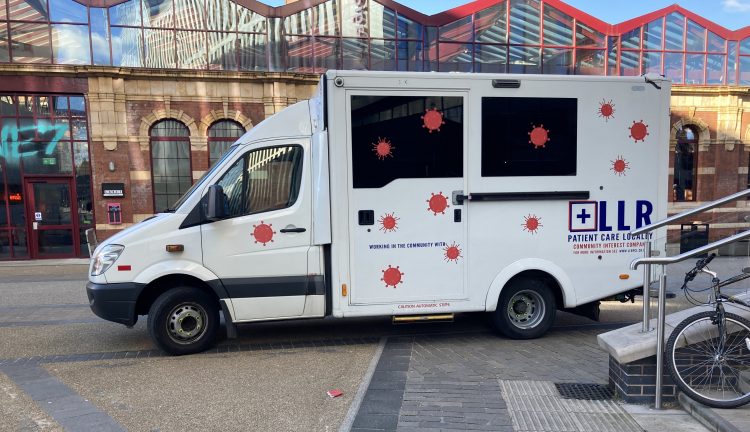The drive to tackle the measles outbreak in Leicester has seen ‘pop-up’ vaccination stations visit accommodation sites in the city to ensure asylum seekers are protected against the virus.
Preventing a measles outbreak in shared accommodation “can be about saving lives”, says Inclusion Healthcare, the organisation behind the initiative.

It comes as the city’s health chief described how Leicester has become a “hotspot” for measles, with figures showing that the number of children in the East Midlands who have not received two doses of the MMR vaccine is around 15 per cent.
The team from Inclusion Healthcare, a not-for-profit organisation which delivers specialist healthcare to asylum seekers, homeless people and excluded patients in Leicester, sprang into action when cases of measles started to rise.
They started contacting those registered with The Assist Practice, Inclusion Healthcare’s city centre base in East Bond Street which provides healthcare specifically for asylum seekers.
However, the turnout for the measles vaccine was low, so Practice Nurse Tracey Watts decided to get out into the community. Enlisting the help of the ambulance service, she has held drop-in vaccination clinics at accommodation used by asylum seekers which The Assist Practice supports. Tracey has also been working with another accommodation site the organisation supports.
Highly contagious diseases like measles can spread easily in multiple occupancy accommodation due to the high volume of people living in one place, where one person with measles can infect up to 20 people.
With potentially hundreds of service users yet to be vaccinated against measles, Tracey is concentrating her efforts on getting as many children and adults immunised as possible, including unaccompanied children.
She said the take-up of vaccines among asylum seekers relies on clear education, raising awareness and building trust.
She said: “Once you’ve explained the possible implications of not being vaccinated, most people are happy to have it done. For instance, we explain the risks of passing measles onto pregnant women, and the danger it poses to babies. We also explain how it can lead to other life-changing conditions, like blindness and deafness.”
Working with asylum seekers does bring its own unique challenges, starting with the language barrier. However, Tracey is normally accompanied by a translator or uses online translation tools.
Another stumbling block can be the element of choice when it comes to opting into the UK’s vaccination programme, as Tracey explains: “Our service users often come from countries where they have been told what to do and what they’re going to have done. If there’s suddenly a choice, it can be more difficult.”
However, according to Tracey the reaction has generally been very positive.
“People trust us. If they know that it is us who will be giving them the vaccine, they’re more likely to want to have it,” she explained.
The dedicated measles campaign is part of a wider immunisation programme delivered by Inclusion Healthcare to ensure the most vulnerable and marginalised people in Leicester are protected against serious disease and illness.
The vaccine outreach programme launched during the pandemic, when buses were used to reach service users during evenings and weekends to deliver COVID-19 vaccinations. The outreach scheme has since been developed to include the flu vaccination.
As well as getting out into the community, vaccinations are also available at The Assist Practice or The Inclusion Practice, which provides healthcare services for homeless people.
For more information about Inclusion Healthcare, visit www.inclusionhealthcare.co.uk



